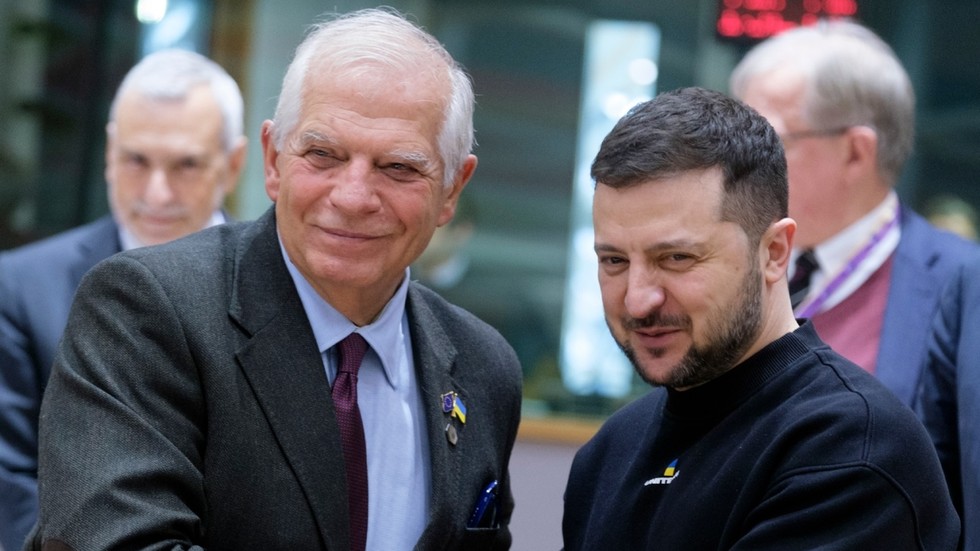Josep Borrell, the outgoing EU foreign policy chief, has highlighted a significant shift in Western attention from the Ukraine conflict to the escalating fighting in Gaza and Lebanon. In a recent interview with Spanish radio station RNE, Borrell expressed concern that the humanitarian crisis unfolding in the Palestinian enclave is overshadowing the ongoing war in Ukraine, which he believes continues with the same intensity as before. Borrell remarked on the declining discourse surrounding Ukraine, indicating that there seems to be a perception that the conflict is less critical or resolved when, in truth, it persists with devastating consequences. While acknowledging the horrors of the situation in Gaza, he characterized it as more extreme in its destruction compared to the war in Ukraine, thus drawing attention to the urgent humanitarian issues.
The dire humanitarian situation in Gaza has attracted Borrell’s particular concern, with the UN estimating it to be the most acute humanitarian crisis since World War II. Borrell warned that around 350,000 individuals in Gaza could face starvation in the coming weeks due to the ongoing conflict and Israeli military operations. He lamented what he perceives as a loss of common humanity, emphasizing that the situation in the Middle East is drawing attention to serious ethical and moral failures in international responses. As violence lingers in both Gaza and Lebanon, Borrell cautioned that the continued hostilities pose a risk of igniting a larger regional conflict, underscoring the potential repercussions of inaction and the necessity of international engagements to curb escalation.
Moreover, Borrell called attention to Israel’s repeated disregard for UN Security Council resolutions aimed at ceasing hostilities in the region. His comments reflect frustration with the global community’s muted response to persistent violations of international law. He contended that without intervention or a collective push for resolution, the situation remains precarious and susceptible to larger geopolitical consequences. There is a palpable sense of urgency in Borrell’s statements, indicating a need for immediate diplomatic engagement to prevent further bloodshed and ensure humanitarian aid reaches those in desperate need.
In parallel with his remarks on the Middle East, Borrell has been a fierce advocate for continued military support for Ukraine. Earlier in October, he urged allies in the US and EU to maintain or even increase military aid, warning that a reduction would allow Russia to gain an upper hand in the conflict within a mere two weeks. Borrell’s advocacy for Ukrainian sovereignty underscores his belief that a robust response from Western nations is imperative not just for Ukraine but for broader European security. He envisions that when the time comes for negotiations, a strong position will ensure favorable outcomes for Ukraine’s territorial integrity and self-determination, contrasting sharply with the growing humanitarian concerns in Gaza.
As Borrell prepares to end his tenure on October 30, he faces the task of simultaneously addressing the urgent humanitarian crises in the Middle East and the ongoing geopolitical tensions in Europe. His successor, Kaja Kallas, former Estonian Prime Minister, is known for her hawkish stance towards Russia and advocacy for stronger sanctions against the Kremlin. Her approach may influence future EU foreign policy, especially as Western nations grapple with the dual crises in Ukraine and the Middle East. Furthermore, since Kallas has been a vocal critic of Russian actions, her leadership may lead to heightened EU responses concerning Moscow, potentially complicating the dynamics surrounding humanitarian interventions.
In conclusion, Borrell’s views encapsulate a pivotal moment in international diplomacy as Europe balances its critical responsibilities amid multiple crises. The shifting focus from the Ukraine conflict to the humanitarian disaster unfolding in Gaza reflects broader geopolitical strains and the intricate interplay of regional and global issues. His alarm about the consequences of underestimating either crisis highlights the interconnectedness of conflicts and the need for concerted, humanitarian, and military measures in an increasingly volatile world. Through this lens, Borrell’s departure represents not just a transition in personnel but also a moment that calls for renewed commitment to global peace and security in the face of overwhelming challenges.

